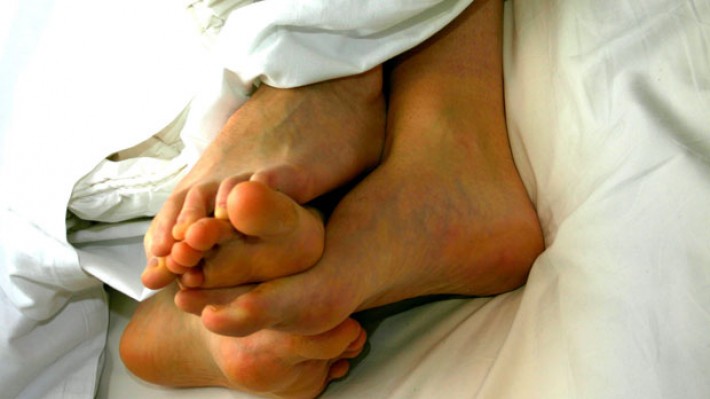How sex can stave off the menopause
New study suggests regular sexual activity delays ‘the change’ - and women don’t need a partner

A free daily email with the biggest news stories of the day – and the best features from TheWeek.com
You are now subscribed
Your newsletter sign-up was successful
Women who get regular bedroom action are less likely to go through an early menopause than their less sexually active peers, according to researchers.
That verdict is based on a new study that suggests lifestyle factors could have more influence than previously thought on when a woman’s reproductive cycle comes to an end.
What is the menopause?
The Week
Escape your echo chamber. Get the facts behind the news, plus analysis from multiple perspectives.

Sign up for The Week's Free Newsletters
From our morning news briefing to a weekly Good News Newsletter, get the best of The Week delivered directly to your inbox.
From our morning news briefing to a weekly Good News Newsletter, get the best of The Week delivered directly to your inbox.
The menopause is when a woman stops having periods and is no longer able to conceive a child naturally.
The process, also known as “the change”, is a natural part of ageing, and usually occurs between the ages of 45 and 55, as a woman’s oestrogen hormone levels decline. “In the UK, the average age for a woman to reach the menopause is 51,” says the NHS website.
The menopause “is thought to occur when the number of maturing egg follicles in the ovaries drops beneath a critical threshold”, adds The Guardian.
Around 1% of women experience early menopause, defined as premature menopause or premature ovarian insufficiency.
A free daily email with the biggest news stories of the day – and the best features from TheWeek.com
Physical symptoms include hot flushes, night sweats, difficulty sleeping and vaginal dryness. Mental effects can include low mood or anxiety, a reduced sex drive, and problems with memory or concentration.
And this new study?
A team led by University College London (UCL) researchers analysed data from 2,936 women who were followed for ten years as part of US study in the 1990s. The women had an average age of 45 at the start of the study, and most were married or in a relationship.
The participants were asked whether they’d had sex with their partner in the past six months; how often they had sex; whether they had engaged in sexual intercourse, oral sex, sexual touching or caressing in the past six months; and whether they had masturbated in the past six months.
The most frequent pattern of sexual activity was weekly, with 64% of women saying they engaged in sexual activity with a partner - or solo - once a week. These women were the least likely to enter early menopause.
So what were the findings?
The study found that subjects who reported engaging in sexual activity weekly were 28% less likely to have experienced menopause at any given age than those who engaged in sexual activity less than once a month. And women who had monthly sex were 19% less likely to have gone through the change than their less sexually active peers.
Study co-author Megan Arnot, a PhD student at UCL, said the findings indicated that the body might “choose” not to invest in ovulation if a woman is not having sex and therefore has no chance of getting pregnant.
“There may be a biological energetic trade-off between investing energy into ovulation and investing elsewhere, such as keeping active by looking after grandchildren,” Arnot said.
Professor Ruth Mace, an evolutionary anthropologist at UCL and the paper’s senior author, added: “The menopause is, of course, an inevitability for women, and there is no behavioural intervention that will prevent reproductive cessation.
“Nonetheless, these results are an initial indication that menopause timing may be adaptive in response to the likelihood of becoming pregnant.”
-
 The environmental cost of GLP-1s
The environmental cost of GLP-1sThe explainer Producing the drugs is a dirty process
-
 Nuuk becomes ground zero for Greenland’s diplomatic straits
Nuuk becomes ground zero for Greenland’s diplomatic straitsIN THE SPOTLIGHT A flurry of new consular activity in Nuuk shows how important Greenland has become to Europeans’ anxiety about American imperialism
-
 ‘This is something that happens all too often’
‘This is something that happens all too often’Instant Opinion Opinion, comment and editorials of the day